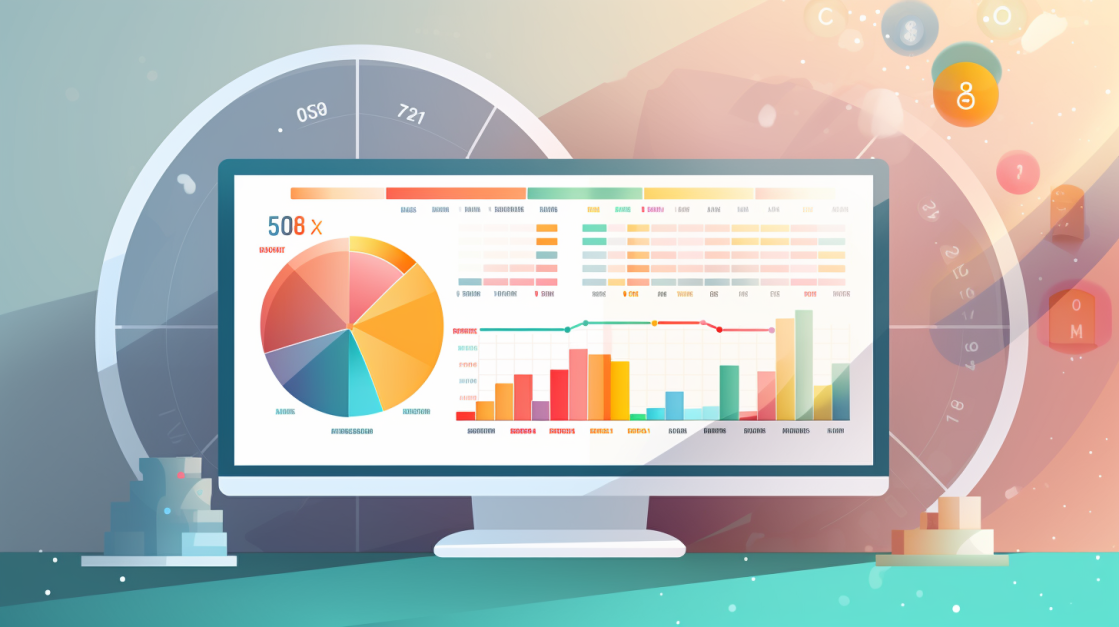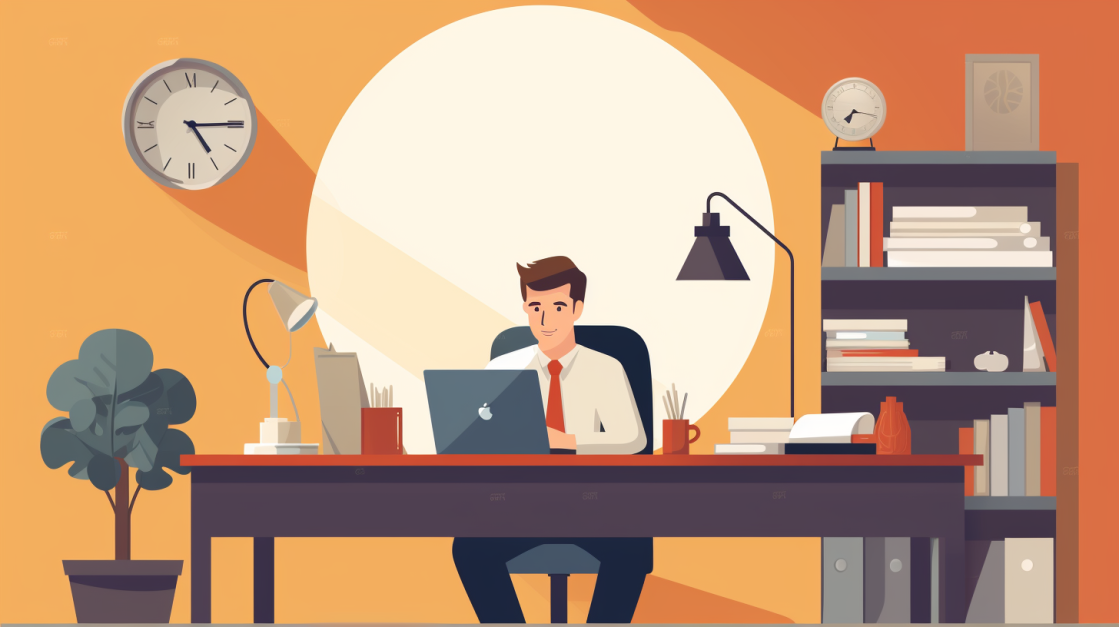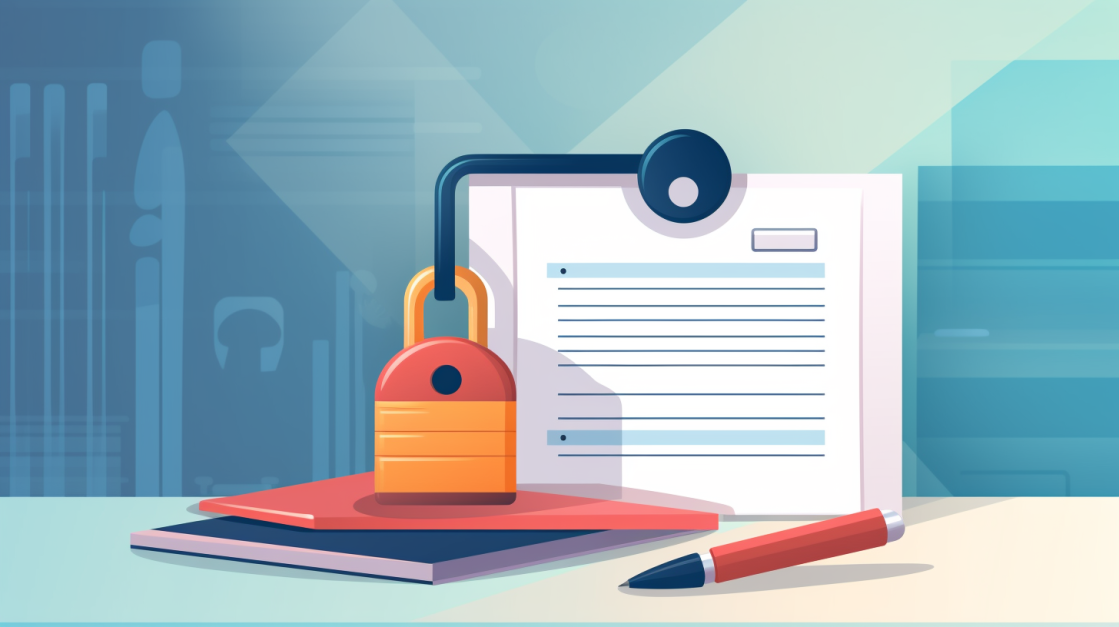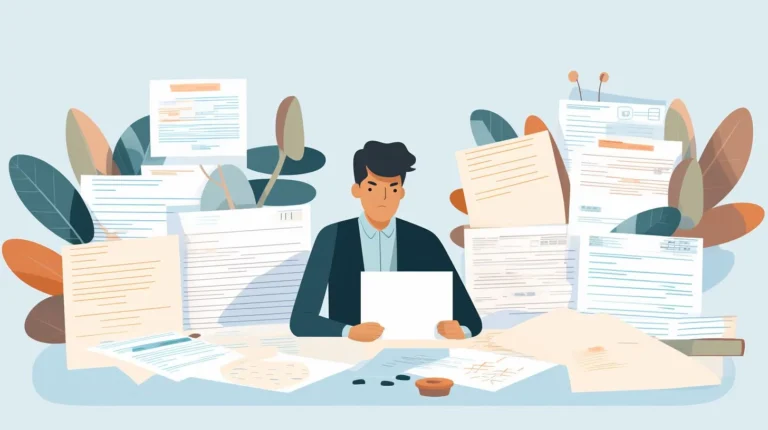How Does Bankruptcy Affect Your Credit?

Navigating the credit realm can often feel as challenging as walking a tightrope, particularly after navigating through an event like bankruptcy. Know that you’re not adrift on this journey; there once was a time when I wrestled with the repercussions of such enormous financial shifts myself.
The ray of hope is this – comprehending how bankruptcy impacts your credit score and learning to patch it back together are feats entirely within your reach – believe me, if I could accomplish that, so can you! Consider this blog post as your go-to compass – brimming with all essential knowledge required for you to reclaim reigns over your financial future..
Hang in there and keep reading; remember that embarking upon the road leading towards sparkling financial prospects begins right at this moment!
Key Takeaways
- Bankruptcy can cut down your credit score.
- Two kinds of bankruptcy exist: Chapter 7 and Chapter 13. They stay on your credit report for ten and seven years respectively.
- Getting new loans or cards after bankruptcy is hard but not impossible. Use steps like waiting before applying, using secured cards, paying bills in full and on time each month etc.
- Ways to rebuild credit include checking credit reports for errors, keeping debt levels low, paying bills promptly and setting up a diverse mix of debts over time.
- There are possible options instead of declaring bankruptcy such as debt consolidation or management plans which can save the severe drop in one’s good credit.
Understanding Bankruptcy

In order to understand how bankruptcy affects your credit, you first need to have a solid grasp on what bankruptcy is. It’s not just about declaring that you can’t pay your bills anymore, it comes with legal implications and different chapters like Chapter 7 and Chapter 13 Bankruptcy, each having its own conditions, benefits and drawbacks.
Understanding these types of bankruptcy will help draw a clear picture of the financial consequences involved in taking this huge step in dealing with debts.
Chapter 7 Bankruptcy
Chapter 7 bankruptcy is tough. It wipes out your debt but it stays on your credit reports for 10 years. That’s a long time! It can really hurt your credit scores too. Imagine trying to get a loan and the lenders see that record in your report.
I bet they would think twice before lending you anything! But don’t worry, there is hope yet! You can rebuild from this by adding good information to your credit reports.
Chapter 13 Bankruptcy
Chapter 13 bankruptcy is a tool to handle debt. It helps make large debts manageable by setting up a payment plan. This allows people to pay back some, or all, of what they owe over time.
Think of it as a way to untie the knot of money problems.
But Chapter 13 bankruptcy comes with costs, too. Once you file for Chapter 13 bankruptcy, it stays on your credit report for seven years. This means lenders can see it when they review your credit history.
They might be more careful about lending money because this shows them that you’ve had trouble with paying debts in the past.
The Impact of Bankruptcy on Credit

Any form of bankruptcy can significantly damage your credit score. Whether it’s Chapter 7 or Chapter 13, the impact is felt immediately upon filing with the bankruptcy court. A lower score means lenders see you as a high-risk borrower, drastically affecting your ability to secure new credit or loans.
And don’t forget – this negative mark stays on your credit report for up to ten years, hindering long-term financial goals.
Credit score and bankruptcy
Going bankrupt can cause your credit score to drop big time. This makes it hard for you to get loans or credit cards in the future. Chapter 7 bankruptcy can stay on your report for ten years, while Chapter 13 stays for seven.
Think of a credit score as high scores win the game. After going bankrupt, even if you pay bills on time, your low score might still keep lenders away.
Yet don’t lose hope! There are ways you can raise that number again over time. On-time payments and keeping debt levels low work well in improving your score after a bankruptcy filing.
Credit report and bankruptcy
Bankruptcy shows up on your credit report too. It stays there for a long time, as many as ten years for Chapter 7, and seven years for Chapter 13. All the banks can see it when they look at your report.
This makes getting new credit cards or loans tough. The lenders worry about their money because of your past bankruptcy filing. Bad marks like late payments also stay on reports, but not as long as bankruptcies do which is seven years only.
The Aftermath of Bankruptcy on Credit
The aftermath of bankruptcy on credit can be daunting; lenders may view you as high-risk, leading to challenges in securing loans or opening new credit card accounts, often at higher interest rates due to the increased perceived risk.
Applying for Credit After Bankruptcy
Getting a new credit card can be tough after bankruptcy. But it’s not impossible. Here are steps to follow:
- Wait for some time. It’s better not to rush into applying for new credit right away.
- Start with a secured credit card. These cards need you to give money as deposit upfront.
- Pay your bills on time, every time. This helps prevent adding more negative information on your report.
- Keep an eye on the balance-to-credit limit ratio of the card.
- Use your card wisely and make sure that you can pay off the balance in full each month.
Rebuilding Credit After Bankruptcy
Starting over after bankruptcy can be tough, but it’s not the end of your financial life. With some time and discipline, you can rebuild your credit score from scratch! How? Dive deeper into our next section where we discuss assessing damage, rebuilding credibility and making big-ticket purchases post-bankruptcy.
Take back control of your finances; let’s regain that lost ground together – read on!
Assessing the Damage

After you file for bankruptcy, check your credit score. You might see it has gone down a lot. This is part of the damage done by bankruptcy. Also look at your credit report. It now shows that you filed for bankruptcy.
Lenders can see this when they check your report. They might not want to lend money or give credit to people who have filed for bankruptcy before.
Rebuilding Creditworthiness
Building back your credit worthiness after bankruptcy is a must. Here are some steps to take:
- Start with a look at your credit report. Check for errors and fix them right away.
- Get a secured credit card. It uses cash as collateral and can help you establish good credit history.
- Make sure all bills are paid on time. This shows lenders you’re serious about meeting financial obligations.
- Keep debts low. Avoid high amounts of debt, especially in relation to your income.
- Open new credit accounts only when needed. Too much debt can hurt your credit score.
- Diversify your mix of debt types if possible.
Making Big-Ticket Purchases
 Buying big things after bankruptcy can seem scary. You need to be brave, but also smart. Here’s a guide you can use:
Buying big things after bankruptcy can seem scary. You need to be brave, but also smart. Here’s a guide you can use:
- Start small: First, buy smaller items. Pay your credit card bill fully and on time.
- Save up: Keep money aside for big purchases. This helps avoid high interest rates on loans.
- Do your homework: Research all about the item before you buy it.
- Use secure credit cards: These cards give the best chance of getting approved after bankruptcy.
- Check your credit score and report: It is vital to know where you stand financially. This data tells you how lenders may view you.
- Consult a financial planner: They can guide you well in making such purchase decisions.
- Await the right time: In time, your credit risk should drop if you pay bills on time consistently and keep debts low.
- Request lower interest rates from Credit Card Issuers: if they agree, this will reduce the overall cost of big purchases.
- Don’t push too hard: Making several large purchases at once may hurt your credit score again.
- Be wary of frauds & scams : Sadly many firms prey upon those who are vulnerable financially – stay safe!
Can Bankruptcy Affect Your Ability to Dispute Errors on Your Credit Report?
If you’re facing bankruptcy, you may wonder if it affects your capacity for disputing credit report errors made easy. Bankruptcy does not directly impact this ability. You have the right to challenge inaccuracies in your credit report, irrespective of your financial situation. However, bankruptcy may indirectly affect your creditworthiness, making it crucial to rectify any mistakes promptly.
Alternatives to Bankruptcy
If you’re facing financial hardship, bankruptcy might seem like the only way out – but it’s not. There are alternatives to consider such as debt consolidation where you combine all your debts into one manageable payment, a debt management plan that is structured and set up by a credit counselor or debt settlement where you negotiate with creditors for a reduced payoff amount.
These options can have different impacts on your credit score so it’s important to evaluate each carefully based on your circumstances before deciding which route to take.
Debt Consolidation
Debt consolidation is a smart move if you have many debts. It brings all loans into one, often with better terms. This can help improve your credit score after bankruptcy. With debt consolidation, managing debt gets easier as there’s just one monthly payment to keep track of rather than multiple ones.
A good thing about this approach is it can be helpful in building up your credit again after facing bankruptcy. So, think about it if you want to get rid of too much debt!
Debt Management Plan
A debt management plan is a good choice if you’re stuck in debt. It works like this: a company handles your debts for you. They talk to the people you owe money to and arrange new payment plans with them.
This means your monthly payments might be smaller, making it easier for you to pay off your debts.
This plan is kinder on your credit score than bankruptcy would be. It shows that while yes, you had trouble paying back what you owed, but decided to take charge and made steps towards fixing the problem instead of just giving up.
So lenders might think better of lending their money to those who have been part of a debt management plan over someone who has filed bankruptcy before!
Debt Settlement
Debt settlement is another way to deal with too much debt. You work out a deal with the people you owe money to. They agree to let you pay less than what you owe. But be careful, this can hurt your credit score.
Yet for some, it’s a good choice if they want to stay away from bankruptcy.
Conclusion

Bankruptcy can hurt your credit a lot. It stays on your record for 7-10 years. But, it also gives you a fresh start to rebuild good credit. So work hard, pay bills on time and make wise money choices after bankruptcy.
FAQs
1. What is bankruptcy and how does it affect my credit score?
Bankruptcy is a legal process that offers debt relief for people in financial trouble. But it will leave a mark on your credit report which can hurt your FICO score.
2. Will filing for bankruptcy discharge all my debts?
Not all debts get wiped out during bankruptcy discharge, like student loans or some tax debt. Bankruptcy involves big decisions around Chapter 7 and Chapter 13 types.
3. Does bankruptcy have the same effect on all kinds of credit scores?
No, the impact of a bankruptcy filing varies based on different lenders’ rules, whether they are auto lenders or credit card issuers.
4. Can I rebuild my credit after a bankruptcy event?
After getting clearance from the court to close your case, you can start with secured credit cards as these require less risk by banks compared to regular ones and aim at improving your payment history and debt-to-income ratio over time.
5.new:
Yes! The road to financial freedom may be tough at first due to possible high-interest rates but with wise financial planning under expert guidance like that provided bycredit repair companies or non-profit agencies you can raise your borrowing capacity step-by-step again within years not decades of good conduct.
6.new:
How long does bankruptcy stay on a Credit Report & Scores/ Report Details?
Per federal law, Chapter 7 details remain visible upto ten years while data related with chapter 13 lasts only about seven odd; affecting each Score Advice /Report Advice differently based upon pre-existing negative information already associated with respective profiles prior default/closure/charge-offs etc.






